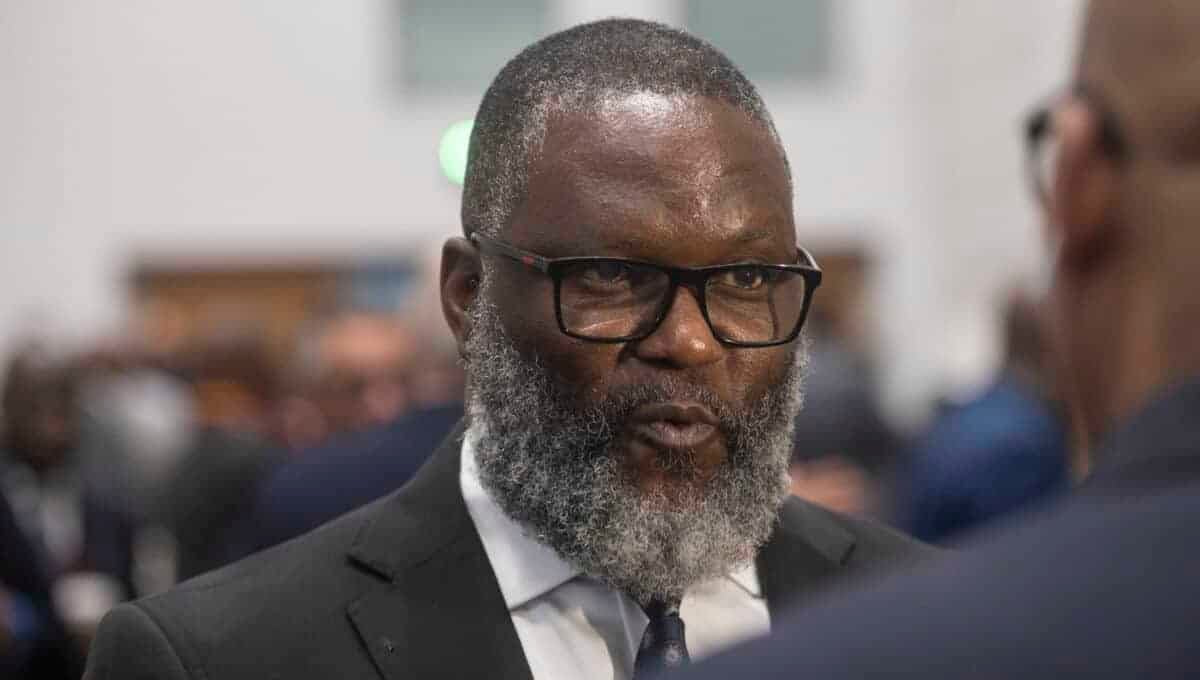Minister Buthelezi says lifestyle audits are performed on senior management due to their potential to commit fraud and corruption.

The Presidency identified 24 public servants suspected of undeclared income, hidden assets and living beyond their means during lifestyle audits in the 2025 reporting cycle.
This is what Public Service and Administration Minister Mzamo Buthelezi revealed during a Governance Cluster oral question-and-answer session at the National Assembly on Tuesday afternoon.
Buthelezi said the department has developed and implemented a lifestyle audit framework in alignment with the president’s directive.
‘Living beyond their means’
He said an integrated lifestyle audit system has been introduced, leveraging existing digital platforms for cross-verification of financial disclosures.
Data submitted by public servants is compared with third-party sources such as companies, the Intellectual Property Commission, and the Deeds Office to identify potential unexplained wealth and conflicts of interest.
“During the 2025 reporting cycle, the presidency reported to have identified 24 public servants suspected of having undeclared sources of income, living beyond their means and in possession of hidden assets,” Buthelezi said.
ALSO READ: SA’s corruption fix: Contracts, lifestyle audits, and real consequences
RISE Mzansi MP Makashule Gana questioned the accuracy of the 24 public servants identified and expressed scepticism about the real story when many public servants live beyond their means.
Senior government officials undergo lifestyle audits
Gana asked about what triggers a lifestyle audit, specifically whether it is only on senior managers or if it also includes junior employees.
Buthelezi clarified that the system focuses on senior management due to their potential to commit fraud and corruption, but acknowledges that junior employees may also be involved.
The minister was also questioned about the key findings and outcomes of lifestyle audits conducted across national and provincial departments, and the specific actions taken against officials where irregularities were identified.
He explained that when issues are flagged in disclosure forms, steps are taken by the relevant department, and if not resolved, the matter is escalated to the minister of public service.
“Then the minister of public service will therefore speak to that particular person to make sure that any wrongdoing that has been found is actually followed through and those that are found to have committed wrong or committed misconduct cases get referred to law enforcement agencies,” he said.
ALSO READ: Missing and suspended HODs cripple Mpumalanga government
Buthelezi said the goal is to ensure that those found corrupt are prosecuted and receive appropriate sentences.
Delayed infrastructure projects
ANC MP Nombiselo Sompa-Masiu asked Minister of Cooperative Governance and Traditional Affairs Velenkosini Hlabisa about the number of delayed infrastructure projects and whether service providers who fail to complete them are being blacklisted.
Hlabisa explained the establishment of the National Strategic Hub to compile data on municipalities’ populations, economies, infrastructure, and governance.
The minister mentioned collaboration with the provincial government and National Treasury to track complete and incomplete projects.
Watch the questions for oral reply: Cluster 3 – Governance here:
He added that municipal managers are responsible for blacklisting employees and service providers who do not complete their jobs.
The minister was also asked about the consequences for government officials involved in delayed infrastructure projects and whether there is a plan for criminal action.
ALSO READ: Over half of Gauteng schools inspected have structural concerns, but only 5% assessed
Hlabisa emphasised the importance of hiring suitable service providers and the role of municipal managers in consequence management.
“In most cases, the service providers are a reflection of how they were hired; when they don’t finish a job… The consequence management, therefore, is a major responsibility of the municipal manager. There is a retention fee; if a service provider does not complete the job, in most cases, they should be on a losing side,” the minister said.
Sassa-Postbank impasse
EFF MP Chumani Matiwane asked Minister of Planning, Monitoring and Evaluation Maropene Ramokgopa about the impasse between the SA Social Security Agency (Sassa) and the Postbank.
Ramokgopa confirmed that mediation is ongoing and 1.9 million beneficiaries are still receiving their grants monthly.
The minister said the main issue is the contractual obligation between Sassa and Postbank, particularly regarding PayPal and administrative processes.
“The beneficiaries are still getting their grants every month, and there are 1.9 million of them. At the moment, we haven’t received any complaints, and recesses relate to breaches of that particular process,” she said.
ALSO READ: Sassa slams false claims of double social grant payments
Ramokgopa was also asked about the long-term solution to prevent future disputes related to grant payments.
She explained the legal framework allowing grant recipients to choose their bank and the challenges with paypoints.
The minister said the current master service agreement does not include paypoints; negotiations are ongoing to ensure beneficiaries are not affected.
‘Sassa has systems in place’
Ramokgopa emphasised that Sassa has systems in place to ensure grant recipients receive their payments.
In terms of whether there is a backup plan in case of failure to deliver grants to beneficiaries, the minister said the current issue is the resuscitation of the master service agreement.
She added that recipients can access their money from any ATM in the country.
ALSO READ: Elderly struggling to access Sassa social grants
“We are informed that Postbank is actually improving them so that the security part of it can be tightened. So currently, we haven’t had any challenges, and things are going as expected,” Ramokgopa said.






